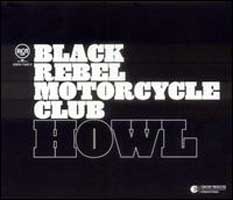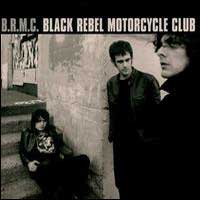|
Since the release of Take Them on, on Your Own in 2003, things were tumultuous
for Black Rebel Motorcycle Club. They were unceremoniously dropped by
Virgin in a cloud of bad feeling. They lost their drummer. They bounced
back and signed with RCA. They welcomed back their drummer. Somewhere
in the middle of all this they completely revamped their sound. In fact,
their first record for RCA, 2005's Howl, sounds like the work of an entirely
different group. Gone are the insistent tempos, the snarling vocals, and
the sheets of guitar noise. Gone is the hostile and often belligerent
pose of the first two albums. Gone is the influence of noise rock bands
like the Velvet Underground and the Jesus and Mary Chain. The band has
embraced classic American music, namely country, blues, and gospel. It's
dramatically expanded its sound to the point where you wonder if the albums
that preceded this were some kind of reductionist prank. The band has
a light touch and sense of drama and arrangement here that seems to have
come out of the blue. (Check the credit to T-Bone Burnett for "additional
recording assistance" for a clue, though.) In fact, the first thing
you hear on the album is enough to have you checking to make sure the
disc isn't defective: the multi-tracked vocals of Peter Hayes and Robert
Levon Been emulating a gospel choir at the beginning of "Shuffle
Your Feet," a rollicking slice of front-porch country complete with
strumming acoustic guitars, harmonica, handclaps, and slide. It's no fluke
because for the most part the album that follows is built on similarly
relaxed, acoustic, and loose underpinnings. Tracks like "Still Suspicion
Holds You Tight," "Devil's Waiting" (which features the
return of the multi-tracked choir), and "Complicated Situation"
have a lightness and ease that they previously could never have achieved.
Other songs benefit from the expansion of sound too: "Weight of the
World" has an epic, reaching-for-the-stars feel not a million miles
from Coldplay and their followers (though it has more gritty soul than
that), while "Howl"'s fuzz chamber sound is the closest thing
to their previous work, but the circus organ, sleigh bells, and dynamics
give the song color where it would have been shades of gray. On these
songs and elsewhere the vocals are much more a part of the sound now as
they are more upfront and impassioned. Both Hayes and Been have fine voices
that are well suited to their new direction, sincere and gritty but never
strained. Along with a new sound BRMC seem to have found religion too,
as nearly half the songs revolve around God, the Devil, sin, and salvation.
"Restless Sinner" and "Gospel Song" (which shows that
the band hasn't completely abandoned its old influences, as the song is
filtered closely through Spaceman 3's interpretation of gospel) are the
most obvious manifestation of this new focus, but much of the record has
the exuberance and weight of a band wrestling with heavy emotions. Well,
that but without being quite as boring as it sounds. Of course, boredom
is relative and by the end of the record you may find yourself wondering
whatever happened to your rock & roll. You may feel betrayed by their
sudden shift away from noise and danger, confused by the sudden change
from a band of sulky post-teens with sex and danger on their minds to
questioning (though still young) adults looking for salvation. Understandable,
no question. If you want your rock dirty, loud, and dangerous (though
BRMC were only halfway believable when that was their image), you had
better look somewhere else. If you want it thoughtful and passionate but
still alive and realistic, then give Howl a chance. BRMC have grown up
and grown interesting.
(by Tim Sendra, All
Music Guide)
|

 Plattentipp
Plattentipp 


 Plattentipp
Plattentipp 
